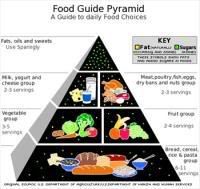Clinical nutritionist and editor of Organic Food News Quarterly, Shane Heaton says the nutrient value in organic food is also much higher. “Official food composition tables, including data compiled by the US Department of Agriculture, reveal that since the 1940s the mineral levels in fruits, vegetables, meat and dairy have declined substantially in conventional foods. Combine this with earlier (pre-ripened) picking, longer storage, and more processing of crops, and it's not surprising that we may be getting fewer nutrients in our food than we were 60 years ago.”He added that organic crops “contain higher levels of trace minerals, vitamin C and antioxidant phytonutrients.” Nutrition specialist Virginia Worthington backs this up. She reviewed 41 studies on organic vs. non-organic foods and concluded that fruits, vegetables and grains contain “27 percent more vitamin C, 21.1 percent more iron, 29.3 percent more magnesium and 13.6 percent more phosphorus.”

Organic meat is another consideration but be aware that not all products marketed as organic actually are. Organic meat producer Kenneth Solway states on his website at http://eap.mcgill.ca/MagRack/COG/COG_E_95_04.htm that "Organic standards regulate an animal from the state of its mother prior to birth, through feeding and housing practices, right to the abattoir and packaging. Many say these regulations are too strict. By being so forceful, these rules have, until recently, made truly certifiable organic meats basically unavailable, playing right into the hands of those who capitalize on fraudulent claims."
According to one organic meat company, livestock must be fed 100 percent organic food that contains no pesticides, herbicides or fungicides or fertilizers. As well, the feed cannot be genetically modified or contain animal bi-products. The animals themselves must be free of growth hormones, steroids and antibiotics. That means if an animal gets sick, it cannot be used to provide organic meat. The animals must also be treated humanly and an independent organic certification body must visit to ensure a farmer has met all of the standards.
However, Solway said that some areas like Ontario have no organic body especially to oversee abattoirs, so the process the meat goes through after it leaves the farm is not supervised.
He noted that consumers must realize that meat can be easily contaminated, so certain steps must be taken to avoid that. Marketers who state that their meat products are “chemical-free” or “hormone-free” are not being honest. However, he added that organic meat producers do use organic feed and the resulting meat is very low in these substances compared to other meats.
Try Meditating The Pounds Away
Click Here!








